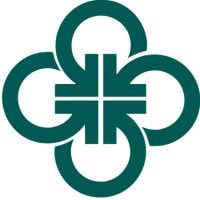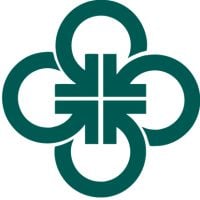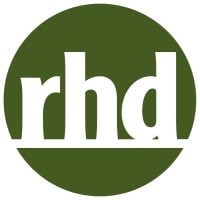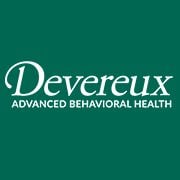Eagleville Hospital
Drug Rehab Center in Norristown, Pennsylvania
Eagleville Hospital in Norristown, Pennsylvania is a comprehensive addiction treatment facility offering a range of services in both inpatient and outpatient settings, including detoxification, dual diagnosis evaluation and treatment, rehab programming, and aftercare support, with a focus on individualized treatment plans and a multifaceted approach to recovery.
About This Norristown, PA Facility
Eagleville Hospital is a 305-bed, non-profit addictions and behavioral health treatment facility located on a scenic 40-acre wooded campus in Eagleville, Pennsylvania. Its mission is to provide premium, integrated care tailored to adults seeking to overcome substance abuse and achieve lasting wellness.
The hospital staffs physicians, nurses, psychiatrists, therapists, social workers and counselors dedicated to addressing complex medical and emotional needs. Eagleville believes in making treatment accessible while establishing community supports for ongoing recovery.
Accredited by JCAHO, SAMHSA and state-licensed, Eagleville offers comprehensive inpatient and outpatient services. These include detoxification, dual diagnosis treatment, rehab programming, cognitive/group/family therapy and aftercare planning.
- Individualized treatment plans for alcoholism, opioid and substance abuse
- Dual diagnosis care for co-occurring mental health disorders
- Multidisciplinary team of medical and therapeutic professionals
- Continuum of inpatient and outpatient programs
Eagleville specializes in treating individuals struggling with alcohol, opioids, illegal drugs and prescription medication addiction. The facility provides a full continuum of evidence-based therapies and support.
For those battling an opioid use disorder, Eagleville's team employs medication-assisted treatment along with behavioral counseling. This comprehensive approach increases treatment engagement and facilitates long-term recovery.
Genders
Ages
Modality
Additional
Accreditations
State License
SAMHSA

JCAHO
Conditions and Issues Treated
Using both legal medications and illegal substances in order to maintain an addiction is substance abuse. Illegal substances can become addictive after a single use. If you are obtaining legal medications illegally, you may be suffering from substance abuse.
Fortunately facilities like Eagleville Hospital in Norristown, PA are here to help.
Opioid addiction treatment facilities in Pennsylvania, like Eagleville Hospital cover both illegal and prescription opioids abuse. Most plans include detoxification and subsequent medications to ease the process. Behavioral therapies and counseling are also necessary to resolve the root cause of addiction.
When someone in Pennsylvania struggles with both addiction and mental or emotional illness, this is considered a dual diagnosis. Dual diagnosis treatment can include emotional trauma, bipolar disorder, schizophrenia, depression. Getting treatment for these issues must occur at the same time to treat either of them effectively.
Levels of Care Offered
This center offers a variety of custom treatment tailored to individual recovery. Currently available are Aftercare Support, Detox, Drug Rehab, Dual-Diagnosis, Inpatient, Outpatient, Residential, with additional therapies available as listed below.
A detox program helps the person physically withdraw from drugs and helps them track their progress. So, suppose the person isn’t ready for sobriety (or relapses). In that case, the treatment professionals can catch it early and help re-orient them towards recovery.
In order to focus on the psychological aspects of addiction, one must first address the physical symptoms of withdrawal.
Withdrawal symptoms can be painful, even fatal, so managing the detox process carefully is critical. Severe withdrawal symptoms are often treated with more advanced pharmaceutical interventions. Nausea and headaches are common side effects of detoxification.
Inpatient rehabilitation aims to treat severe addictions and co-occurring disorders. Depending on individual requirements, the duration of the stay at Eagleville Hospital ranges from four weeks to six months. Pennsylvania inpatient recovery guarantees that the patient resides in an environment free of drugs.
Residential treatment programs are those that offer housing and meals in addition to substance abuse treatment. Rehab facilities that offer residential treatment allow patients to focus solely on recovery, in an environment totally separate from their lives. Some rehab centers specialize in short-term residential treatment (a few days to a week or two), while others solely provide treatment on a long-term basis (several weeks to months). Some offer both, and tailor treatment to the patient’s individual requirements.
Treatment for substance abuse does not cease after an individual successfully completes a detox or rehabilitation program. A vital follow-up treatment service is aftercare support provided to individuals at Eagleville Hospital in Pennsylvania after they attain initial sobriety.
Aftercare support often takes the following forms: 12-Step Programs, Outpatient Treatment Programs, and Support Groups. The most effective aftercare programs are tailored to meet an individual’s specific needs and circumstances.
Eagleville Hospital‘s Therapies & Programs
Treatment programs include individual therapy for the greatest chances of success. Customized individual therapy is counseling involving you and your Eagleville Hospital counselor. Individual therapy leads to greater peace and understanding about your triggers for addiction.
Spousal relationships bear the brunt of alcohol and drug dependence. It becomes critical to submit the relationship to couples therapy to prevent straining it further. Some facilities like Eagleville Hospital in Norristown, PA offer couples therapy options to manage intimate partnerships amid the recovery process. Other couples-focused treatment plans can provide the patient and their partner tools to get things back to normal.
When family members are more proactive and involved in the treatment procedure, it encourages the patient to advance his or her progress. Moreover, it shouldn’t be ignored that genetics play a role when it comes to addiction, so it’s better to approach the problem as a unit. Also, with proper education, family members can help an individual avoid addiction triggers and guide him or her in making lifestyle changes necessary for his or her sobriety.
It has been said that unhealed trauma is the root of most addictions. Trauma therapy is a way of addressing trauma while in a safe situation in order to heal. Healing past traumas and introducing coping strategies are strong foundations for sustained recovery from addiction. This may involve individual or group counseling or both, in a Norristown, PA facility. Other forms of therapy have been proven to assist in healing past traumas.
Dialectical Behavior Therapy (DBT) helps those who attend Eagleville Hospital understand how their feelings, beliefs, and thoughts affect their behaviors. DBT is particularly useful for people with self-harming behaviors, as well as those with substance abuse disorders. DBT teaches people how to tolerate distress, regulate their emotions, and how to become mindful.
Cognitive Behavioral Therapy (CBT) is a type of psychotherapy that focuses on the underlying thoughts and behaviors that caused the problem of addiction in the first place and may cause a relapse. Negative feelings are common in substance abuse disorders, and if not recognized, they can cause co-occurring disorders.
CBT involves strategies that help to change the thinking and behavioral pattern by cognitive restructuring. In simple terms, it helps to remove negative thoughts and provides long-term benefits. Also, CBT promotes self-awareness, self-control, and healthy ways to respond to negative thoughts. It can be administered as a mono-therapy as well as a part of combination therapy.
In the midst of an addiction certain healthy habits and behaviors can be forgotten or discarded altogether. While in treatment you will learn life skills that will help you successfully maintain sobriety and rebuild your life in Norristown, PA. Some examples of this are time management, social skills, nutrition, hygiene, stress management and taking care of yourself.
The 12-step program is a part of substance abuse treatment. In this program, peers help each other to achieve the goal of abstinence. It was initially developed by the founders of Alcoholics Anonymous. Due to its huge success, the 12-step program is included as a part of other substance abuse treatments.
The 12 steps guide at an individual level. It begins with the individuals accepting that they are addicts, and they understand its consequences. It is followed by focusing on the recovery process and making amends for hurting others. The program provides the benefit of cognitive restructuring, which refers to the process of change in the negative thoughts that leads to long-term benefits.
Payment Options Accepted
For specific insurance or payment methods please contact us.
Is your insurance accepted?
Ask an expert, call (888) 674-0062
Additional Details
Specifics, location, and helpful extra information.
Norristown, Pennsylvania 19403 Phone Number(800) 255-2019 Meta DetailsUpdated April 15, 2024
Staff Verified
Patient Reviews
There are no reviews yet. Be the first one to write one.
Norristown, Pennsylvania Addiction Information
Pennsylvania ranks 14th in the nation for drug-related deaths. More than 10% of all deaths in Pennsylvania have been related to drugs and alcohol. 30% of Pennsylvania youth reportedly drink alcohol monthly, with more than 20,000 teenagers having an alcohol problem. The rate of opioid misuse in Pennsylvania is double the national average.
About 9.2 percent of people in Norristown, PA, have abused drugs in the past month. Cocaine was the drug most commonly involved in overdoses in 2016. Norristown had a rate of 27.1% drug overdose deaths in 2016. Finding the right treatment is an important decision. Norristown offers a variety of treatments, so it is important to do your research to find the best fit for you or your loved one.
Treatment in Nearby Cities
- Bloomsburg, PA (80.2 mi.)
- Wexford, PA (246.5 mi.)
- Beaver Falls, PA (261.3 mi.)
- Waynesboro, PA (117.8 mi.)
- Saint Clair, PA (56.6 mi.)
Centers near Eagleville Hospital
The facility name, logo and brand are the property and registered trademarks of Eagleville Hospital, and are being used for identification and informational purposes only. Use of these names, logos and brands shall not imply endorsement. RehabNow.org is not affiliated with or sponsored by Eagleville Hospital.











